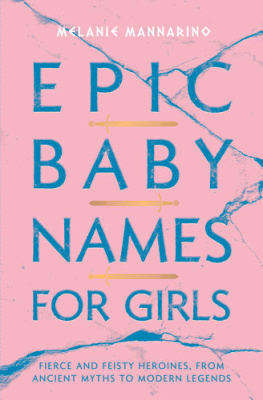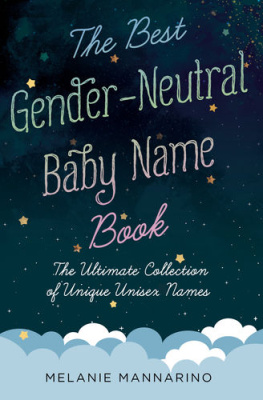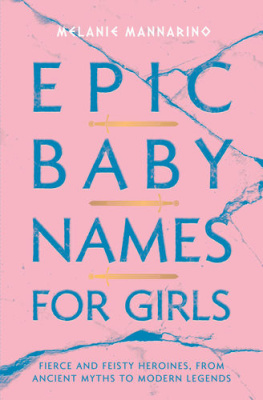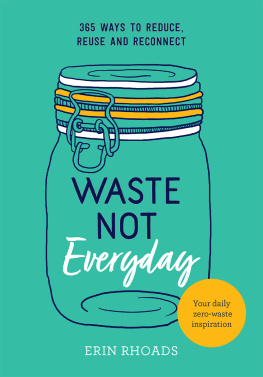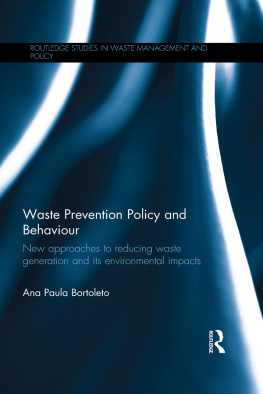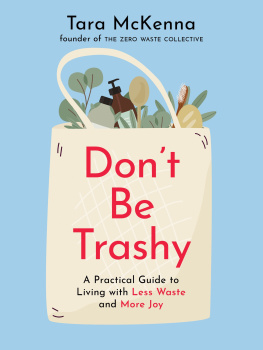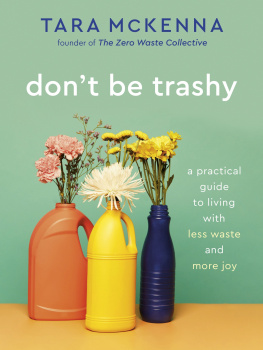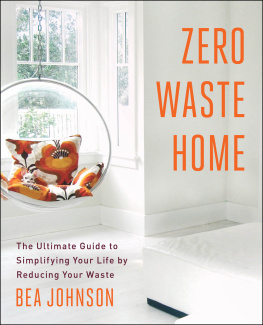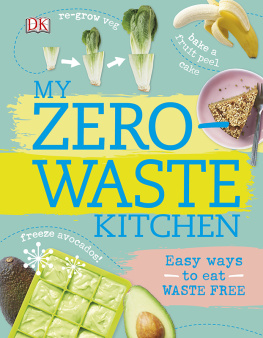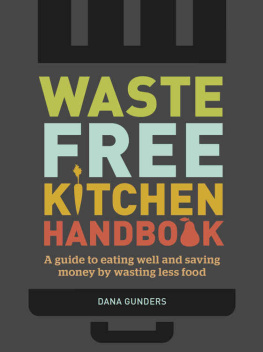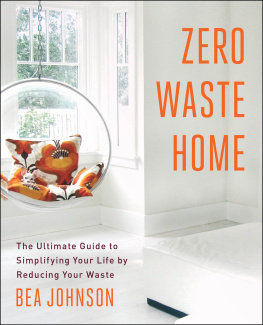Melanie Mannarino - The (Almost) Zero-Waste Guide: 100+ Tips for Reducing Your Waste Without Changing Your Life
Here you can read online Melanie Mannarino - The (Almost) Zero-Waste Guide: 100+ Tips for Reducing Your Waste Without Changing Your Life full text of the book (entire story) in english for free. Download pdf and epub, get meaning, cover and reviews about this ebook. year: 2021, publisher: Tiller Press, genre: Home and family. Description of the work, (preface) as well as reviews are available. Best literature library LitArk.com created for fans of good reading and offers a wide selection of genres:
Romance novel
Science fiction
Adventure
Detective
Science
History
Home and family
Prose
Art
Politics
Computer
Non-fiction
Religion
Business
Children
Humor
Choose a favorite category and find really read worthwhile books. Enjoy immersion in the world of imagination, feel the emotions of the characters or learn something new for yourself, make an fascinating discovery.
- Book:The (Almost) Zero-Waste Guide: 100+ Tips for Reducing Your Waste Without Changing Your Life
- Author:
- Publisher:Tiller Press
- Genre:
- Year:2021
- Rating:3 / 5
- Favourites:Add to favourites
- Your mark:
- 60
- 1
- 2
- 3
- 4
- 5
The (Almost) Zero-Waste Guide: 100+ Tips for Reducing Your Waste Without Changing Your Life: summary, description and annotation
We offer to read an annotation, description, summary or preface (depends on what the author of the book "The (Almost) Zero-Waste Guide: 100+ Tips for Reducing Your Waste Without Changing Your Life" wrote himself). If you haven't found the necessary information about the book — write in the comments, we will try to find it.
Melanie Mannarino: author's other books
Who wrote The (Almost) Zero-Waste Guide: 100+ Tips for Reducing Your Waste Without Changing Your Life? Find out the surname, the name of the author of the book and a list of all author's works by series.
The (Almost) Zero-Waste Guide: 100+ Tips for Reducing Your Waste Without Changing Your Life — read online for free the complete book (whole text) full work
Below is the text of the book, divided by pages. System saving the place of the last page read, allows you to conveniently read the book "The (Almost) Zero-Waste Guide: 100+ Tips for Reducing Your Waste Without Changing Your Life" online for free, without having to search again every time where you left off. Put a bookmark, and you can go to the page where you finished reading at any time.
Font size:
Interval:
Bookmark:
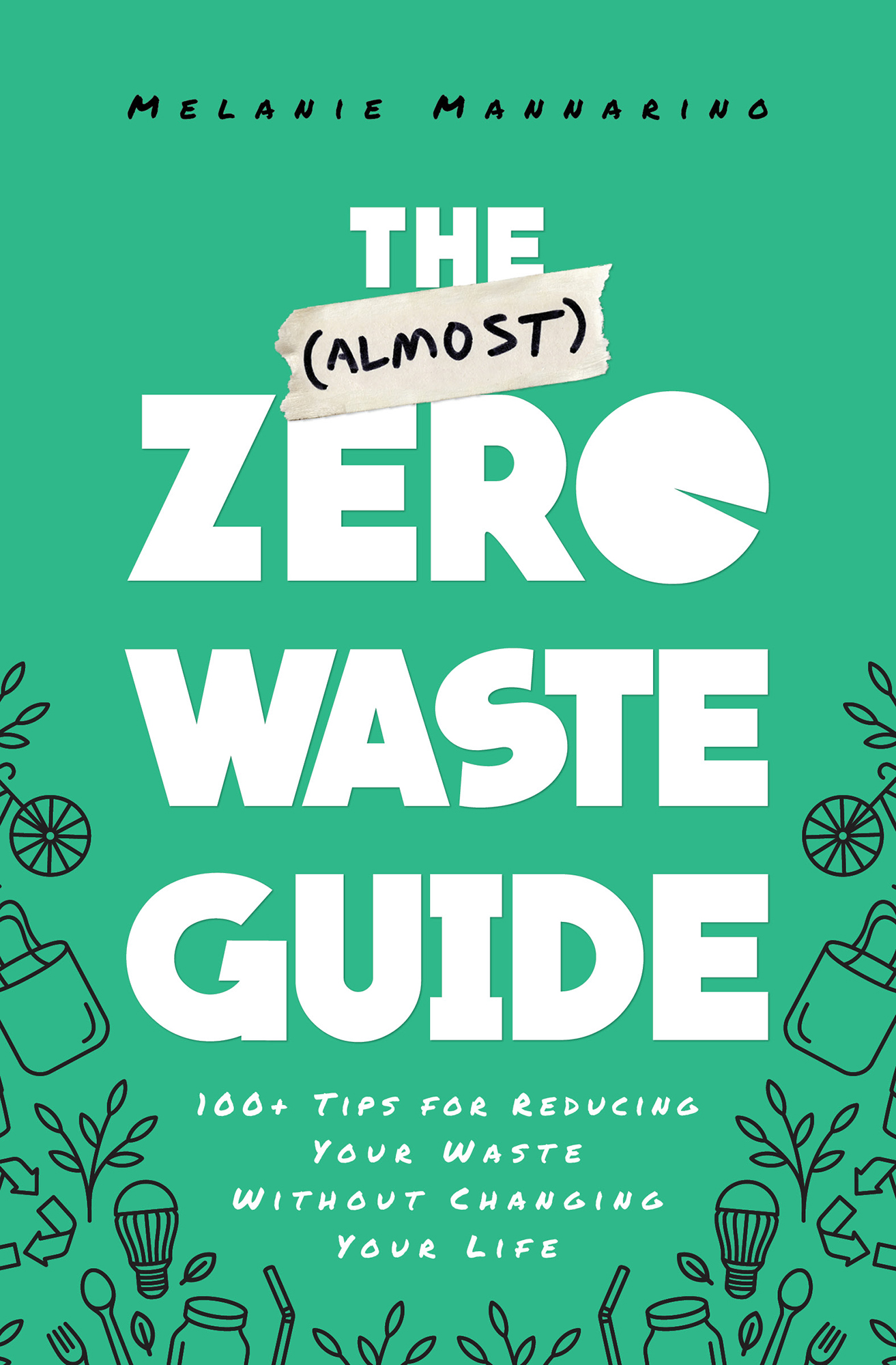

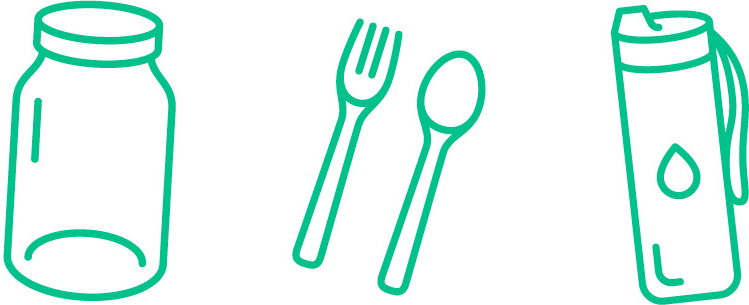
T here are people on this planetin different countries and cities and townswhose discarded trash for a year fits tidily in one glass Mason jar. These environmental heroes have mastered the art of living as close to zero waste as possible.
I am not one of those people.
True zero waste, of course, is when everything humans produce or use either gets consumed in its entirety (like, say, a sandwich), reused (the ceramic plate the sandwich is on), recycled (the plastic bag the bread came in), or composted back into the land to fertilize the soil (the core from the lettuce leaf on the sandwich). Nothing gets incinerated or sent to a landfill or ends up in the ocean or air to pollute the environment.
In this way, we leave no indelible mark (or, honestly, scar) on our planet. No landfills teeming with discarded armchairs, dirty diapers, and food scraps buried so deep that they cant decompose naturally and instead do so without air, creating methane that contributes to climate change. No industrial-size incinerators burning materials we no longer need and darkening our skies with smoke and chemicals. No plasticsfrom grocery bags to facial scrub microbeadsin our water supply, consumed by ocean life that we in turn eat for dinner.
Its enough to make you want to slam the brakes on your current consumer lifestyle and grab that Mason jar, right? Except for most of usonce we start looking around our home, our workplace, and even our carits incredibly easy to get overwhelmed by the sheer amount of waste being generated every minute of every day. While writing this paragraph, I used a tissue and threw it in the wastebasket, wrote a to-do list on a sticky note, took a sip from a plastic drinking cup, and considered making shrimp for dinnershrimp thats currently sitting in a sealed plastic bag in my freezer. Im typing on a computer that will one day wear out, checking a phone that will become obsolete, and being shielded from the sun by lowered honeycomb window shades that will eventually break and need to be replaced.
But you know what? I have a rainwater collection system in my backyard, I buy secondhand furniture, and on countless occasions Ive said to my little boy, Why would we buy those packaged cookies/Halloween costumes/holiday decorations when we could make them ourselves? In fact, many of the ideas in this book come straight from my own life.
To be honest, theres no way I could ever take myself and my family from typical modern consumer household to zero-waste household in one giant lifestyle makeover. Its a huge commitment in terms of time, budget, resources, and behavioral change, and its just not feasible at the moment. What is feasible, though, is incorporating more and more ways to reduce our household and personal waste, one lifestyle tweak at a time. Consider it (almost) zero waste.
You dont have to adopt an all-or-nothing zero-waste lifestyle to live more sustainably and be more environmentally friendly. Every single step you take to reduce the waste you createfrom car exhaust to plastic wraplessens your overall impact on your community and the planet. Actively striving toward zero waste is an accomplishment itself. The journey is the thingits something to do in a world where, environmentally speaking, theres a lot of bad news. Humans have driven greenhouse-gas emissions to unprecedented levels, which contributes to climate change. Globally, we dump 2.01 billion tons of waste in landfills
So if youre feeling inspired to change your habits in order to reduce your consumption of natural resources, or to simply reduce the waste you produce, Im here to tell you that you can easily do it. If shutting off the faucet while you brush your teeth can help save a little water now so that we have more later in case we really need it, do it. If using the broken shards of your grandmothers serving platter to make a cool mosaic not only keeps them out of the landfill but also preserves a visual memory, do it. Every time one of us refuses a straw or a handful of plastic utensils, were reducing the amount of single-use plastics needing disposal in one way or another.

Every little thing we do makes a difference, and in this book Ive outlined more than one hundred changes you can make in your daily life that will reduce your environmental impact in terms of pollution, energy usage, food waste, and more. These actionable tips address unseen wastethe stuff we dont throw out, like vehicle emissions, electrical energy, and wateras well as the tangible waste we do see, like worn-out running shoes and used kitty litter. Try one at a time, or start all of them tomorrowthe choice is yours. Only you know which options make sense for you.
In fact, Im willing to bet that right this minute you could look around your home or your office and identify a handful of simple changes you could make. We know what were doing wrong; its a matter of identifying a way to do it right that fits with your individual lifestyle.
As you read the (almost) zero-waste strategies and ideas in this book, youll start to notice a pattern: each one fits neatly into one of the central behaviors of a zero-waste lifestyle. Darby Hoover, senior resource specialist for the Natural Resources Defense Council (NRDC), sums it up succinctly: Reduce, reuse, recycle. That mandate isnt newit dates back to the 1970s. But its catchy and easy to remember, and it tells us all we need to know to start working toward zero waste.
- Think about where you can reduce the materials or energy you use to get through your day. Bring your own travel mug to the coffee shop instead of accepting a plastic-lined paper to-go cup (theyre generally not recyclable, BTW).
- Reuse materials wherever you can. Do you need to buy a black-tie outfit for that wedding, or can you rent one or borrow from a friend?
- Recycle everything you possibly can to drive down the amount of waste that goes to the landfill, doomed to decompose anaerobically (without oxygen), releasing methane into our air and accelerating climate change even further.

Were constantly throwing things away. The half-eaten office birthday cake? It gets thrown away at the end of the day. Candy wrappers and chip bags? They get thrown away. A pair of holey socks? Thrown away.
We dont always think about what happens next, do we? We toss an item into the trash bin, and from there it goes to the garbage collectors, who bring it to the dump. The cake, the chip bags, and the socks are now out of our minds and our lives.
Except theyre not really out of our lives. Waste is overrunning our planet, says Hoover. The idea that there is an awayour world isnt big enough for that anymore, she says. There is no away. And yet we continue to think there is. Recycling has become the good away, unlike the landfill, which is bad away, she says. But this cant be our sole solution. At a certain point, that landfill is going to be so large that it will literally be in our own backyard.
Font size:
Interval:
Bookmark:
Similar books «The (Almost) Zero-Waste Guide: 100+ Tips for Reducing Your Waste Without Changing Your Life»
Look at similar books to The (Almost) Zero-Waste Guide: 100+ Tips for Reducing Your Waste Without Changing Your Life. We have selected literature similar in name and meaning in the hope of providing readers with more options to find new, interesting, not yet read works.
Discussion, reviews of the book The (Almost) Zero-Waste Guide: 100+ Tips for Reducing Your Waste Without Changing Your Life and just readers' own opinions. Leave your comments, write what you think about the work, its meaning or the main characters. Specify what exactly you liked and what you didn't like, and why you think so.

